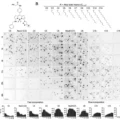
A recent groundbreaking study conducted by researchers at Northwestern Medicine has unveiled new insights into the complex interplay of genetics responsible for the risk of developing Parkinson’s disease (PD). The study, utilizing advanced CRISPR interference technology, meticulously scanned the entirety of the human genome, unveiling an unrecognized panel of genes pivotal to the disease’s pathogenesis. This research not only elucidates a longstanding enigma surrounding PD risk but also paves the way for novel therapeutic targets that could revolutionize treatment approaches for patients worldwide.
For years, scientists have grappled with the question of why certain individuals harbour pathogenic variants that predispose them to Parkinson’s disease yet do not exhibit any symptoms, while others succumb to the affliction. Traditionally, it was hypothesized that additional genetic factors might play a substantial role in this phenomenon. The Northwestern study, addressing this hypothesis head-on, provides a comprehensive overview of how certain genetic variants can modify the risk of developing PD, thus adding a new layer of complexity to the existing understanding of neurodegenerative disorders.
By deploying CRISPR interference, researchers were able to conduct a genome-wide screening to silence each protein-coding gene within human cells, a technique that offered a novel methodology to pinpoint genes crucial in the development of Parkinson’s disease. The results identified a unique set of 16 proteins collectively termed the “Commander complex,” a significant finding that reveals the integral role these proteins play in transporting proteins to the lysosome. The lysosome, crucial for cellular biochemistry, acts as a kind of waste disposal system, breaking down unnecessary cellular material while recycling components necessary for optimal cell function.
Crucially, prior studies pinpointed mutations in the GBA1 gene as a primary risk factor for Parkinson’s disease and related disorders. Subsequent research demonstrated that pathogenic mutations in GBA1 lead to impaired functionality of glucocerebrosidase (GCase), an enzyme essential to the lysosomal recycling process. Notably, the latest Northwestern study sheds light on the unknown factor: the interactions between the Commander complex and GCase activity, providing a clearer understanding of how specific genetic variations can lead to pathological conditions. By analyzing genetic data collected from large cohorts, including vital resources like the UK Biobank, researchers discovered significant correlations between loss-of-function variants in Commander genes and increased Parkinson’s disease risk.
As the researchers pursued their investigation, they uncovered an array of implications surrounding lysosomal function and the overall maintenance of cellular health. The study illustrates how the disruption within the Commander complex not only contributes to the etiology of Parkinson’s disease but also highlights the broader implications for other neurodegenerative disorders characterized by lysosomal dysfunction. This multifaceted approach opens avenues for exploration into a potential new class of drugs targeting the Commander complex that could improve lysosomal function across various diseases.
In light of these findings, it is imperative to consider the therapeutic potentials that Commander-targeting drugs may hold. Such drugs could not only aid in enhancing the function of the lysosomal recycling system but may also complete existing treatment regimens aiming to augment glucocerebrosidase activity within lysosomes. The prospect of combinatorial therapeutic strategies is particularly tantalizing; they hold the promise of more effective management plans for patients with Parkinson’s disease, navigating the complexity of genetic predispositions while addressing the biochemistry that leads to neurodegeneration.
Further research is on the horizon, diving deeper into the nuances of the Commander complex and its possible implications for other neurological conditions. The potential for drugs targeting this complex to be leveraged in the treatment of diseases characterized by lysosomal dysfunction, such as Alzheimer’s and other neurodegenerative disorders, is a field ripe for exploration. This broadening of focus not only enhances the current understanding of Parkinson’s disease but also sets the stage for interdisciplinary approaches that could transform how neurodegenerative diseases are approached across the medical landscape.
Northwestern’s study, published in the prestigious journal Science, underscores the importance of collaboration and innovation in dissecting the complexities of human genetics. With substantial contributions from multiple researchers, including leading figures like Dr. Dimitri Krainc, the study exemplifies how teamwork and modern technological solutions can intersect to illuminate answers to previously unresolved questions in medicine.
As the medical community assimilates these novel insights, the understanding of Parkinson’s disease continues to evolve significantly. The findings from Northwestern Medicine offer a renewed sense of optimism within the field and signal a potential shift in therapeutic strategies targeting genetic factors and underlying cellular processes contributing to the disease. The implications of this research stretch far beyond Parkinson’s disease alone, highlighting the intricate web of cellular interactions and genetic influences that govern a variety of neurodegenerative disorders.
As scientists and healthcare professionals dive into the complexity of genes, proteins, and cellular pathways, the future of Parkinson’s disease research seems both promising and filled with potential breakthroughs. The dedication of researchers to uncovering the intricacies of human health paves the path for innovative therapies that could vastly improve the quality of life for millions affected by this devastating disease. With continued advancements and collaborative efforts, the journey toward effective treatments for Parkinson’s and similar neurodegenerative diseases is just gaining momentum, inspiring hope for those navigating the challenges of these conditions.
Subject of Research: Genetics and risk factors associated with Parkinson’s disease
Article Title: Commander complex regulates lysosomal function and is implicated in Parkinson’s disease risk
News Publication Date: 10-Apr-2025
Web References: Science Journal
References: Not available
Image Credits: Credit: Northwestern University
Keywords: Parkinson’s disease, commander complex, lysosomal function, CRISPR technology, neurodegenerative disorders, genetic research, therapeutics, glucocerebrosidase, neurobiology, protein function, cellular mechanisms, drug development
Tags: complex interplay of geneticsCRISPR technology in researchgene discovery in neurodegenerative disordersgenetic factors in neurodegenerationgenome-wide screening techniquesNorthwestern Medicine studynovel methodologies in genetic researchParkinson’s disease geneticspathogenic variants and disease risksilencing protein-coding genes.therapeutic targets for Parkinson’sunderstanding Parkinson’s disease pathogenesis








No Comments
Leave a comment Cancel